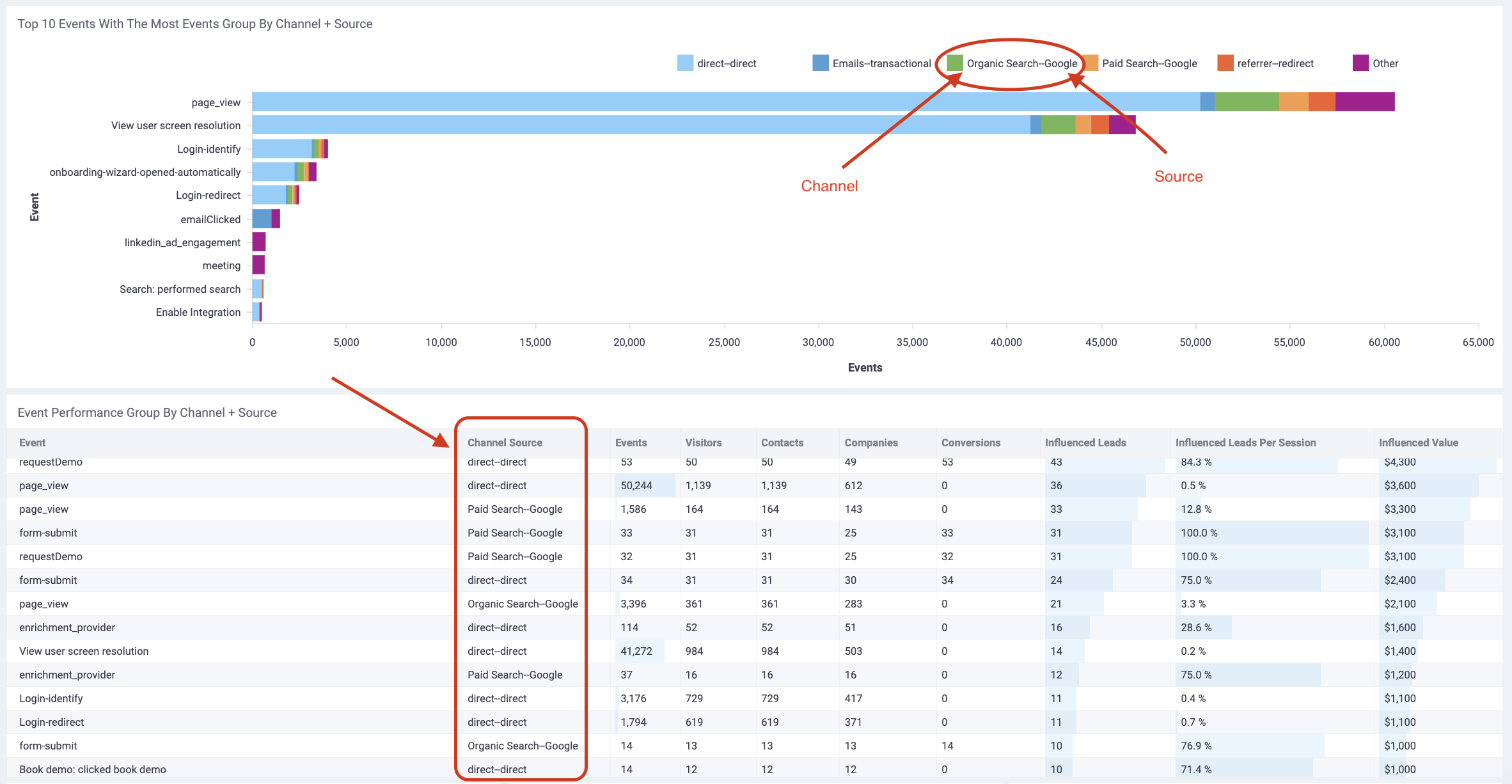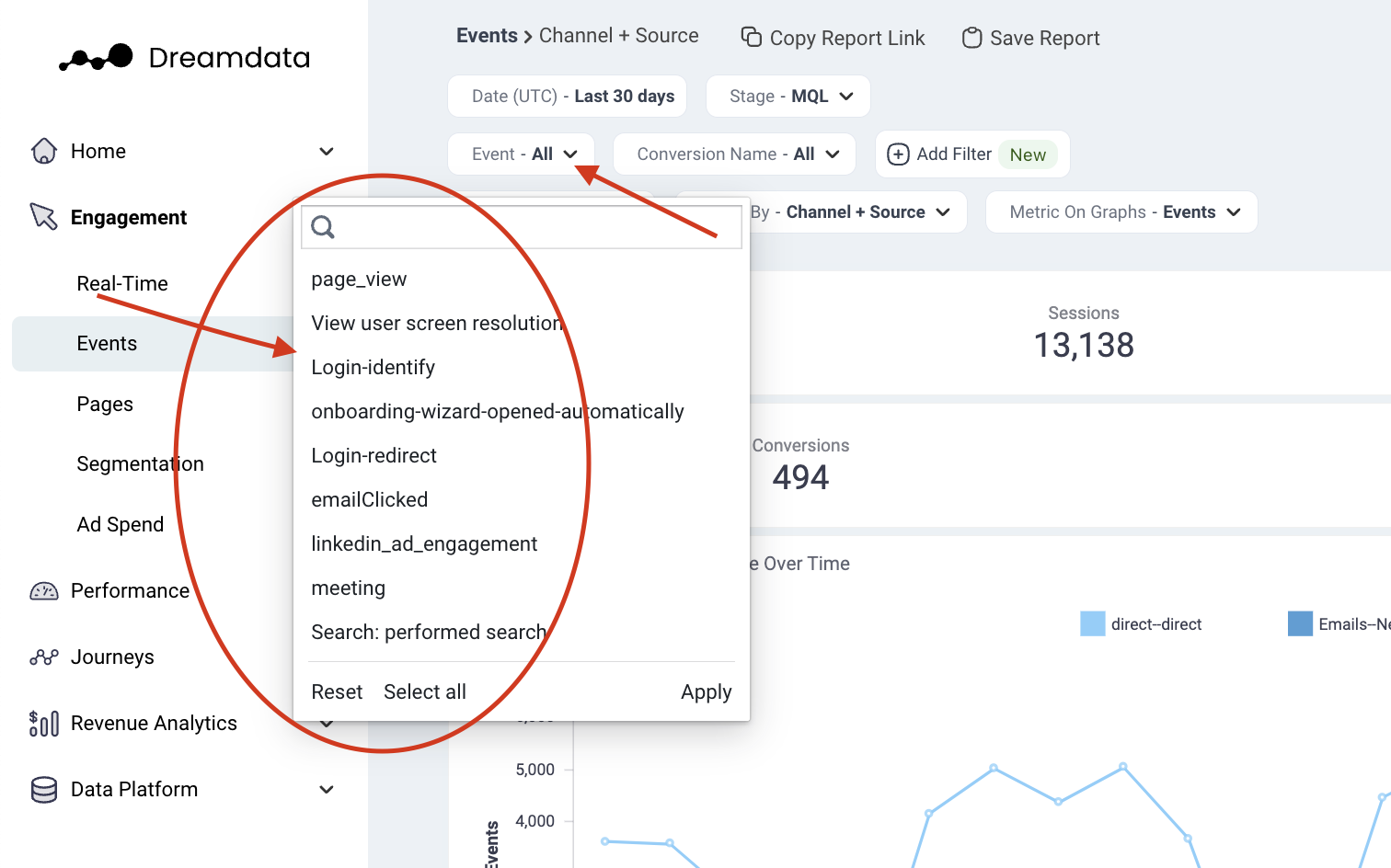Understanding: Source, channel and event
In this article, we will briefly explain, what these terms mean and where you’re most likely to encounter them in Dreamdata.
As a result, you will be able to easier understand the platform and ultimately help you to better navigate it throughout your journey.
Source, channel, and event
The concepts: Source, Channel, and Event are core terms that are used throughout the entirety of the Dreamdata platform.
Check out the second one about UTM mapping rules here, and the third one about how to map your UTMs in Dreamdata here.
What are Sources, Channels, and Events in Dreamdata?
The naming conventions that you see in Dreamdata might deviate a little from what you're used to, but the concepts are almost the same as the ones you're used to.
Sources:
Sources are used to describe the entity that sent the user to where they are.
For example, this could be search engines such as Google or Microsoft Bing or it could be social media platforms such as LinkedIn or Meta.
In Dreamdata we see sources as just that.
So when someone clicks on an ad they will end up on your platform.
And if that ad is a Google ad, that means that the source is Google.
Channel:
A channel is a medium from which a company communicates its marketing messages through to its desired audiences.
These could be either paid search, paid social, or organic search, organic social, emails, calls, etc.
All of these are different channels used to promote your company, and in Dreamdata, this is exactly what we're analysing - It works as a type of medium used to advertise your company.

Events:
In the context of the Dreamdata platform, an "event" refers to a user action or system occurrence that is tracked within the platform.
These events could be everything from webpage visits, email interactions, product interactions eg. signing up for a demo or trial, etc.
Events are crucial for understanding the customer journey, assessing the effectiveness of marketing strategies, and making data-driven decisions to improve customer experience and drive revenue growth.
This differs from a lot of marketer's understanding of the word. They tend to view “an event” as an actual physical event e.g a trade show.
In Dreamdata an event can also be seen as an action. In even simpler terms, an event is an activity.
Therefore a physical event is also an event in Dreamdata terminology.

We are always here to help so please reach out to friends@dreamdata.io with any questions or requests!
Thank you!

